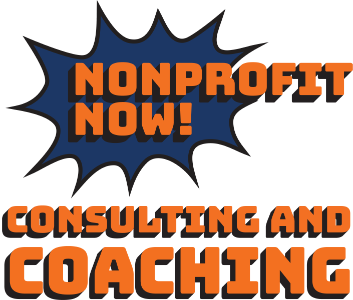 This past Sunday, I was pleased to read Giving Billions Fast, MacKenzie Scott Upends Philanthropy for two reasons. First, at a time when nonprofit services are more in demand than ever, it was a win to read about this level of generosity. In summary, Ms. Scott gave over $4 billion to 384 organizations. I can't deny that a part of me is still wrestling with the question of whether there is a "better way" for the helping sector to thrive than being primarily dependent on donations. I won't go down the rabbit hole of that much longer discussion. For now, till we find that next way, nonprofits thrive (or don't thrive) based on the generosity of donors. And the reasons for support can range from outright altruism to the more transactional: marketing, tax benefits and other motivations. I look forward to tackling that question in a more robust way going forward. One of the most refreshing aspects of Ms. Scott's giving was that it was done with no strings attached. After doing the requisite research on a broad range of charities, she made her gifts without the onerous reporting requirements that typically come with institutional giving. But reporting and restrictions aren't limited to the world of foundations. Individuals are free to ask for whatever they want - anything from naming to reporting to speaking opportunities at events. As a side note: Ms. Scott's gifts were made as individual, not foundation gifts so they weren't bound by the usual legal and tax requirements that come with foundation giving, In any event, the operative and refreshing word here is TRUST. In a way that bucks the way much of philanthropy is done these days, she chose to place trust in those she gave to. As Ms. Scott went on to say, "Not only are nonprofits underfunded, they are also chronically diverted from their work by fund-raising and by burdensome reporting requirements that donors often place on them." The article then quotes Katie Carter of the Pride Foundation, one of the recipients, who stated "That mentality of trust is what we need in philanthropy". I fully agree with all of the above. And please don't misunderstand. I am all for accountability and transparency for nonprofits. But I would add that the present challenge goes well beyond this critical question of trust. In my experience over two decades in the nonprofit sector, I've seen the focus of many funders move from creating results a.k.a. real change to measurement often simply for measurements sake. Intertwined with this question of how donors and charities can see themselves as partners on the same side of the table are the following questions about measurability that should be examined: Are We Choosing Metrics Over Results? The answer is rarely as simple as a yes or no. But there are some clear symptoms: Are you and your team spending more time collecting data as opposed to looking at what the data means? Do meetings with donors put you on edge and have your team scrambling to fill in key metrics as opposed to being challenged to figure out whether the metrics have borne out the hypothesis for your intervention. These are some leading telltale signs. Are We Learning From the Metrics? Is your charity simply collecting data or learning from it. One step further would be using these metrics to see what’s NOT working, owning and course-correcting for it. One of the other big challenges the nonprofit industry faces is an environment that rarely supports experimentation, risk-taking, and even (OMG) occasionally failing. Metrics should be used well-beyond fulfilling reporting requirements. Used strategically, they’re a resource for identifying how we can do what we do - but better and more effectively. What’s the Right Balance? I’m not advocating that we step back to the days of simply “doing good stuff” with nothing but touching stories to share the impact of our work. What I am taking a stand for is awareness and finding that important balance between communicating the impact of donor dollars while ensuring that your charity always has its eye on the prize - Real Results that Change Lives. What are your thoughts on trust and measurement in the nonprofit sector? I'd welcome your thoughts...
0 Comments
Leave a Reply. |
AuthorRobert Grabel is the President of Nonprofit Now! You can find his posts here and at www.robertgrabel.com Archives
August 2022
Categories |


 RSS Feed
RSS Feed
